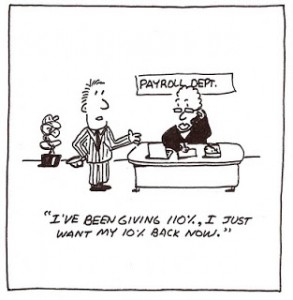All of the above can help to avoid liquidation of limited companies.
It has been announced that Rangers FC is to be liquidated by HM Revenue and Customs (HMRC), after an attempt to reach a CVA(Company Voluntary Arrangement) failed. HMRC’s decision is based on it’s policy of “not agreeing to a CVA where there is strong evidence of non-compliance by a company with its tax liabilities.”
 A CVA is a legally binding agreement between an organisation owed money (creditor), and the company that owes the money. It means that the company can continue to trade, while paying off an agreed proportion of the debt regularly. Any company reaching this stage is likely to have been trading involvently, and there is a risk that the directors could face disqualification, or even prosecution.
A CVA is a legally binding agreement between an organisation owed money (creditor), and the company that owes the money. It means that the company can continue to trade, while paying off an agreed proportion of the debt regularly. Any company reaching this stage is likely to have been trading involvently, and there is a risk that the directors could face disqualification, or even prosecution.
In rejecting the arrangement, HMRC is forcing Rangers into liquidating its assets to pay the debt. To do this and continue a football club Rangers is set to reform as a new company, buying the assets from the old. The proceeds of which will be used to partially settle the debt. There are no winners in cases like this. The company’s creditors lose out, as the debts are much higher than the value of the assets. Taypayers lose out, as the goverment will not receive the money owed to the state. HMRC is not the only creditor, and many creditors will not receive a penny of the money owed to them. The former owner of Rangers has the burden of admitting he waited too long to put the company into administration. The owners of the new company have a great deal of work ahead to turn Rangers into a financially viable proposition.
The situation is not restricted to prominent companies, with millions of pounds passing through their bank accounts. Any company, of any size, can drift into insolvency. If your limited company owes more out that it can generate, it could be insolvent. If you run a limited company, you need to keep track of its financial health.
There are several stages to this:
1. Regular bookkeeping, weekly or, at the very least, monthly. With bank accounts reconciled, supplier statements checked, petty cash checked as a minimum.
2. Management accounts, monthly or quarterly. Get them done as soon as possible after the period end. Relying on your accountant to give you the good/bad news up to 9 months after your company’s year end is not good enough. Management accounts can be simple or complex, but add value by giving you valuable information about your business.
3. Acting on the information in your management accounts. Prepare financial forecasts. If you don’t like them, or it looks like your business is going down hill, make changes. Save costs, use your management accounting information to identify poor performance of products and services, and improve them or drop them.
4. Keep reviewing, keep making changes. Employ others when you need to. Outsource if it’s easier or cheaper.
5. Don’t be afraid to make difficult decisions. Large organisations are often criticised for making redundancies quicky, but by acting fast, and losing 1,000 jobs they could be saving the remaining 30,000. Fail to act and all 31,000 could go.
6. Pay creditors on time. They do notice if you’re late, and good payers will be treated well when a problem arises.
The same principles apply to small and large companies. However good you are at your core business activity, don’t overlook the value of managing your finances and accounts.
If you would like any help with bookkeeping, management accounts or forecasting, please get in touch.
 The UK minimum wage increases by 19p per hour on 1st October 2014, for all workers aged 21 and over.
The UK minimum wage increases by 19p per hour on 1st October 2014, for all workers aged 21 and over.



 A CVA is a legally binding agreement between an organisation owed money (creditor), and the company that owes the money. It means that the company can continue to trade, while paying off an agreed proportion of the debt regularly. Any company reaching this stage is likely to have been trading involvently, and there is a risk that the directors could face disqualification, or even prosecution.
A CVA is a legally binding agreement between an organisation owed money (creditor), and the company that owes the money. It means that the company can continue to trade, while paying off an agreed proportion of the debt regularly. Any company reaching this stage is likely to have been trading involvently, and there is a risk that the directors could face disqualification, or even prosecution.